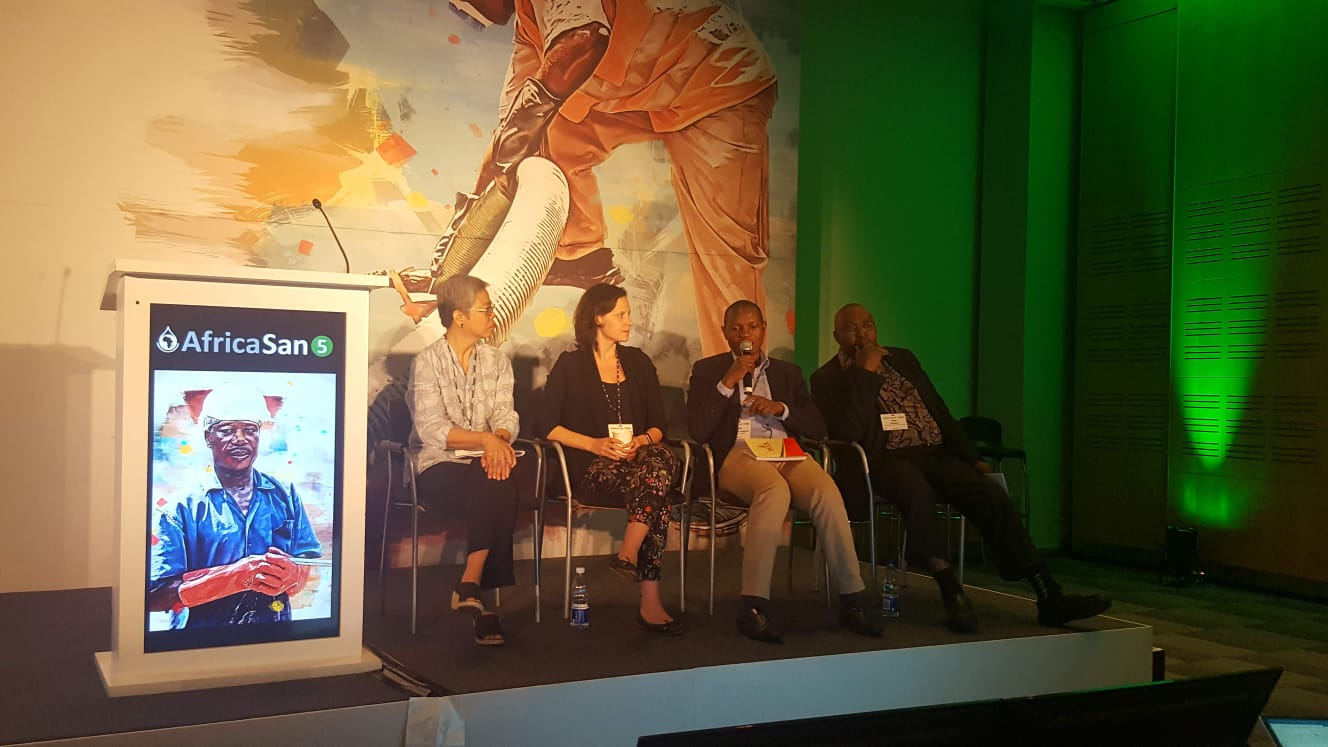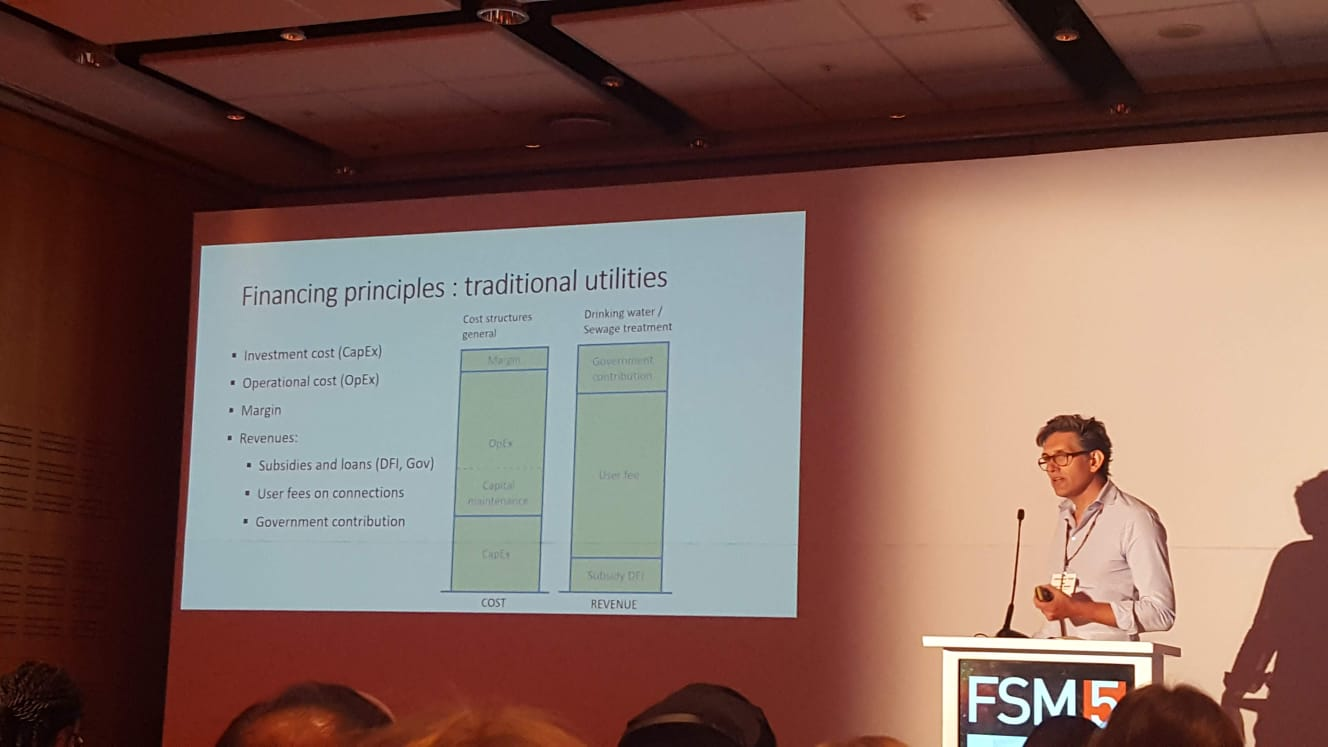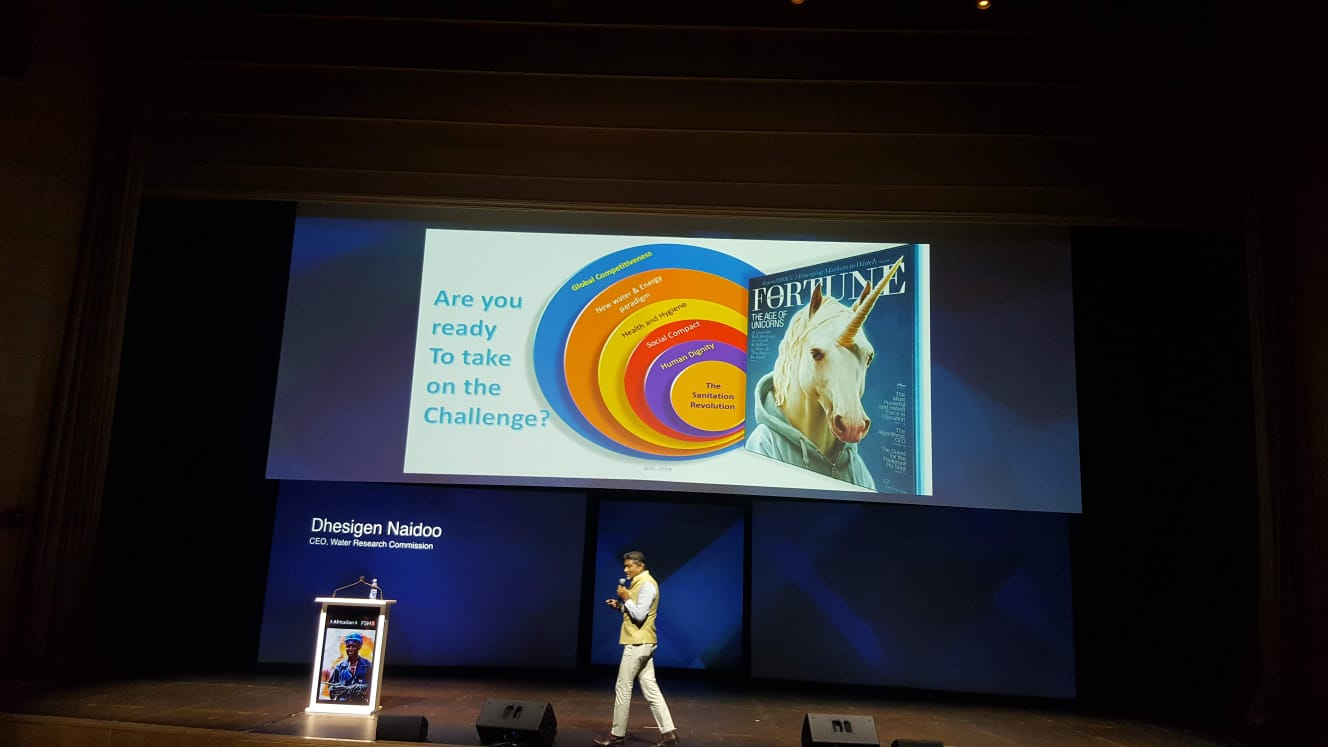Though the event was explicitly Africa-focused, around 1,200 sanitation practitioners from all over the world joined the fifth conference for Faecal Sludge Management (FSM) in Cape Town on 18 – 22 February. This year the FSM conference was jointly conducted with AfricaSan; a platform of African Ministers’ Council on Water (AMCOW). This brought a unique opportunity to build more bridges between sanitation practitioners and policy makers to strive towards achieving improved sanitation access for underserved communities. For the first time the GSMA Mobile for Development Utilities (M4D Utilities) team, and no less than six of the sanitation service providers we are supporting through our Innovation Fund, were invited to take part in this conference. Below are some of our main takeaways from the event.
Poor sanitation kills more people than AIDS and Malaria in Africa
Sanitation remains one of the most pressing development challenges on the continent. This was underscored by some eye-opening data points shared by various conference participants:
- 60 per cent of Africans remain without access to basic sanitation (UNICEF);
- 14 African countries have a very high open-defecation rate (over 50per cent) (AMCOW, 2019); and
- Following the NGOR declaration, AMCOW member-states made some progress on increasing government commitment to sanitation, but have failed to reduce inequality in access to sanitation.
On the third day of the event, Neil Macleod, a sanitation sector veteran who is well-known for his pioneering work with eThekwini Water and Sanitation in Durban (South Africa), expressed some frustration. This was over governments’ bias for ex-post interventions addressing public health crises arising from poor sanitation instead of addressing its root cause and reaping the various multiplier effects associated with improved access to sanitation. Despite the potential of public-private collaboration, and innovative technology, there still remains a lot of work to be done to raise awareness and convince public policymakers that increased investments in sanitation are a development imperative.
Mobile and technology are already enabling some progress
There are more and more examples of thriving mobile-enabled digital solutions in the sanitation space. These solutions address real challenges such as mapping infrastructure needs and meeting demand, proving innovative financing solutions, and optimising logistics and transport management.
One of those examples, highlighted on the first day of the conference, comes from India where the government of Tamil Nadu has developed a Management Information System – MIS based tools to track and monitor sanitation services. The system has already been deployed across 1952 administrative bodies and over 516 municipalities in Tamil Nadu. This approach has the potential to significantly improve government’s responsiveness and understanding of citizens’ sanitation-related demands.
On the second day of the event, the M4D Utilities programme, jointly with the Container Based Sanitation Alliance (CBSA) – one of the organisations we are supporting through our Innovation Fund – conducted a session on accelerating sanitation access through mobile technology. In this session, industry experts stressed that mobile money can play a vital role in reducing transaction costs, as well as increasing payment collection transparency. Mobile-enabled GIS-mapping was also identified as a potentially transformational tool for logistics and value-chain management in the sanitation sector. Meanwhile, some sanitation service providers are also interested in the potential of sensor-based technologies. Most importantly, the panel highlighted several already existing use-cases in mobile-enabled sanitation service delivery across different African countries such as Sierra Leone, Uganda, Kenya, Zambia, Senegal, Madagascar, and Ghana.
The CBSA was also prominently featured during Rebecca Gilsdorf’s presentation of a World Bank report, which evaluates the potential of container-based sanitation (CBS) approaches. The report features in-depth case studies on past and present M4D Utilities Innovation Fund grantees Sanergy (Kenya), Sustainable Organic Integrated Livelihoods (SOIL) (Haiti), and X-Runner (Peru), as well as Clean Team (Ghana). It highlighted that CBS is a legitimate option for promoting improved sanitation among municipal governments (as highlighted by CBS provider Loowatt’s recent partnership with Manila Water and the Laguna Provincial Government), but that challenges such as the monetisation of additional revenue streams remain.
Looking ahead: Making sanitation solutions sustainable
One of the key questions private sanitation service providers are grappling with is financial sustainability. Given that sanitation is a public good, is it feasible and realistic for sanitation start-ups to be commercially sustainable from their inception, or is it more realistic to accept that providers will likely not be covering their full costs in the short term—and that most urban sanitation services around the world are subsidised to one degree or another? An independent sanitation consultant brought this argument to third day of the conference and emphasised the need to bring more public funding into the sector. This is a key underlying question when it comes to improving sanitation access across the continent – how to implement sustainable solutions?
A Ghana-based waste to resource start-up, SAFI SANA, demonstrated that, even if a commercial entity maximises all of its potential revenue streams, making profit from a sanitation business remains difficult to achieve in the current market scenario. Government/donor grant support remains critical to the sector. Similar findings were shared by ‘Blue Water Company’ – an India-based start-up that operates a pit emptying service in the mountainous Leh area in the Himalaya mountain range. They cautioned private sanitation service providers not to engage in too much hype and remain grounded in (data-driven) reality.
One proposal brought forward was for governments to create special funds to invest in sanitation service providers. This is exemplified by the Blue Fund, which was jointly launched by USAID and the Government of Senegal.
Sanitation has not been industrialised or automated anywhere in the world. During the first day plenary session, the Director of Water Research Commission challenged conference participants to think big, ‘industrialise sanitation’, and build the first sanitation unicorn.
Whether we will ever see a sanitation unicorn or not, the FSM5-AfricaSan5 conference ended with a shared commitment among all participating stakeholders to drive progress in access to sanitation before the next meet up in 2021. Throughout the event it was widely acknowledged that the potential for technology to help enable sanitation access is enormous. There was a keen interest both from public policy makers and from private sectors to embrace information technology on their endeavour to bring sanitation access. Despite some promising initial success stories in mobile-enabled sanitation, which we featured in our recently published annual report, the M4D Utilities programme is convinced that mobile-enabled sanitation is still at a nascent stage and yet to unleash its full potential. After attending the FSM5-AfricaSan5 conference, we are as determined as ever to continue to leverage mobile technology to drive improved sanitation access.
We would like to end this blog by thanking to the organiser for inviting us to attend and speak at this event.
The GSMA Mobile for Development (M4D) Utilities programme is funded by the UK Department for International Development (DFID), USAID as part of its commitment to Scaling Off-Grid Energy Grand Challenge for Development and supported by the GSMA and its members.





